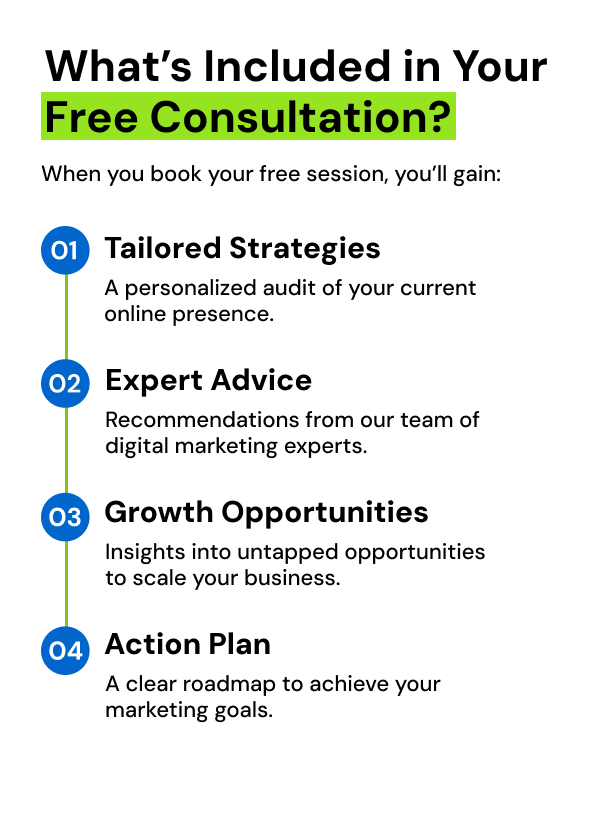If you are a D2C brand, it is essential that you have at least a foundational understanding of SEO and how to utilize it in favor of customer engagement and improved sales. By designing and executing an effective SEO plan, you can achieve better results in sales and drive traffic. Through this blog, we will dive into the importance of an SEO strategy and how to effectively design one for your business. But before that, let’s understand what is SEO and why is it so important in the digital marketing aspect.
Understanding SEO and its importance in brand building:
SEO or search engine optimization is all about promoting your digital content for better search engine results and to drive traffic and conversions. SEO is an important aspect of marketing and is designed as an acquisition strategy to organically attract customers from search engines.
Being a D2C brand, drafting an effective SEO strategy is the need of the moment to attract customers and build brand awareness. It becomes essential that you treat your website as more than just a mere e-commerce platform that allows customers to shop and accumulate with your brand. An effective SEO strategy plays an essential role in marketing to bring brand success and traffic. The D2C SEO strategy can help brands and businesses in the following ways:
- Increases the visibility of the brand
- Improved revenue
- Boosts the organic traffic to optimize the marketing budget
- Higher ranking in the SERPs
- Better quality traffic
Here are four steps for building an effective SEO strategy that will help to attract and convert customers:
Learning about the SEO status quo:
The first step towards designing or understanding SEO is to have a detailed knowledge of the current organic search performance. Thus, by implementing Google Analytics on the website, you can get a comprehensive idea of the traffic received on the website through organic search and compare it to the traffic received from other acquisition channels. Besides, using Google search consoles can help identify the search impressions, click-through rates, clicks, and average ranking positions. You can also retrieve the Google search console reports into the Google Sheets and create automatic backups.
Conduct a competitive analysis:
After you have gathered your knowledge of organic traffic, it is time to get some idea and understand what the competitor’s search looks like. You can invest in some SEO tools to gather the search data of other websites. The competitive analysis helps to devise an effective SEO strategy based on industry standards that could drive traffic efficiently.
Some of the major SEO metrics:
When you check your domain overview by typing the domain name, you will come across four SEO metrics:
- Organic keywords identify the number of keywords present in your website that have ranked within the 100 top positions.
- Organic search traffic presents the estimated traffic in a month.
- Domain score is the measure of the domain’s trustworthiness, which varies for different SEO strategy tools.
- Backlinks are the number of links created from other websites to yours.
Use search data to identify competitors:
It is also essential to identify your competitors so that you can develop an effective strategy to improve traffic. You must look into your list of organic keywords to find the data on which brands or businesses are competing with you.
Compare SEO performance with competitors:
You can retrieve the data of your competitors to make a quick comparison based on the four metrics.
Branded vs. non-branded search:
Next, you need to categorize the keywords into branded and non-branded lists for comparison. However, one thing that you need to keep in mind is to always compare the data from the same source.
Mapping keywords for customer journey:
A customer journey shares the trajectory from the point the customer learns about the product to make the first purchase and beyond. The customer journey map can be broken down into four different stages:
- Brand awareness
- Conversion
- Relationship building
- Word-of-mouth
Understanding short-tail and long-tail keywords:
Short-tail keywords are search terms with one or two words, while long-tail keywords are the ones with three or more words. The short-tail keywords have high search volume but have lower intent. On the other hand, long-tail keywords have explicit search intent and higher click-through rates as they have a better match with the search content. Combining both types of keywords is the key to achieving a well-planned and executed SEO strategy.
Building a target keyword list for each stage of the customer journey:
We have provided some suggestions on how to create a target keyword list for the customer journey:
- Include the current keywords: The first step towards building a keyword list is to identify the branded keywords and segregate them into short-tail and long-tail keywords. Long-tail keywords are usually useful for the fourth stage of the customer journey when customers specifically seek a particular product. Next, you need to identify the non-branded keywords with high relevance and search volumes.
- Earmark competitor keywords: You can also include the relevant non-branded keywords from competitors as part of your keyword list.
- Get insights from the customers: Since the ultimate goal of SEO is customer acquisition, it is best to derive insights from past customer journeys. Besides, you must also know customer demographics and geolocations.
- Receive insights from Google: Google provides suggestions for keywords so that you can try them out. Another efficient way is to look for the “people also asked” section in the search engine results.
How can we help with D2C SEO?
An SEO agency like ours will help your business or brand website to standout in the search engine results. We have been delivering effective and result-oriented SEO services to various brands and businesses catering to various industries. We help to enhance the Google rankings of D2C businesses. Contact us today for well-designed and executed D2C SEO services.







